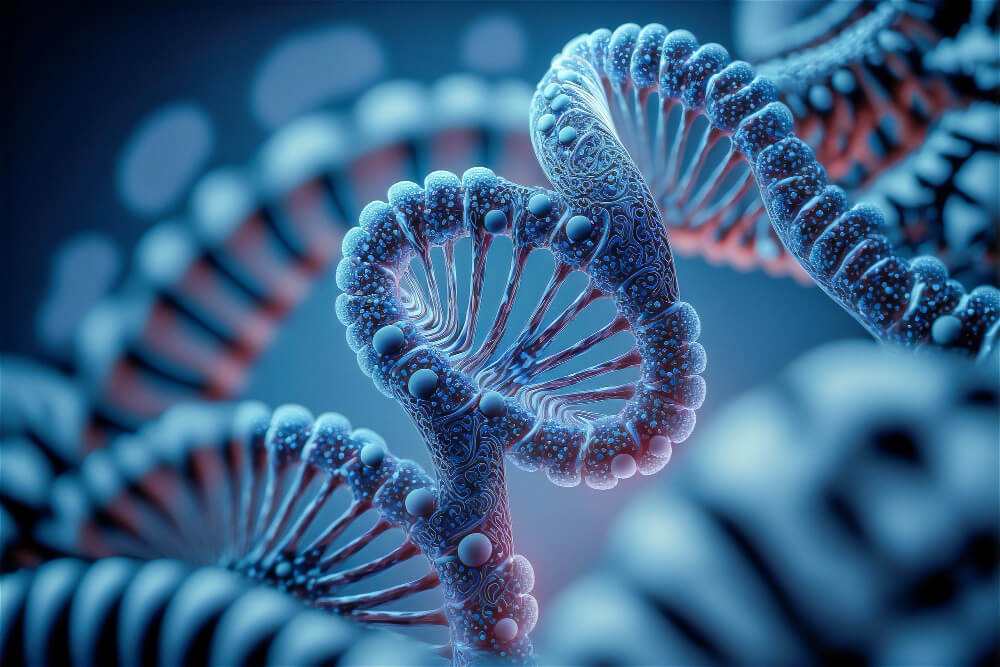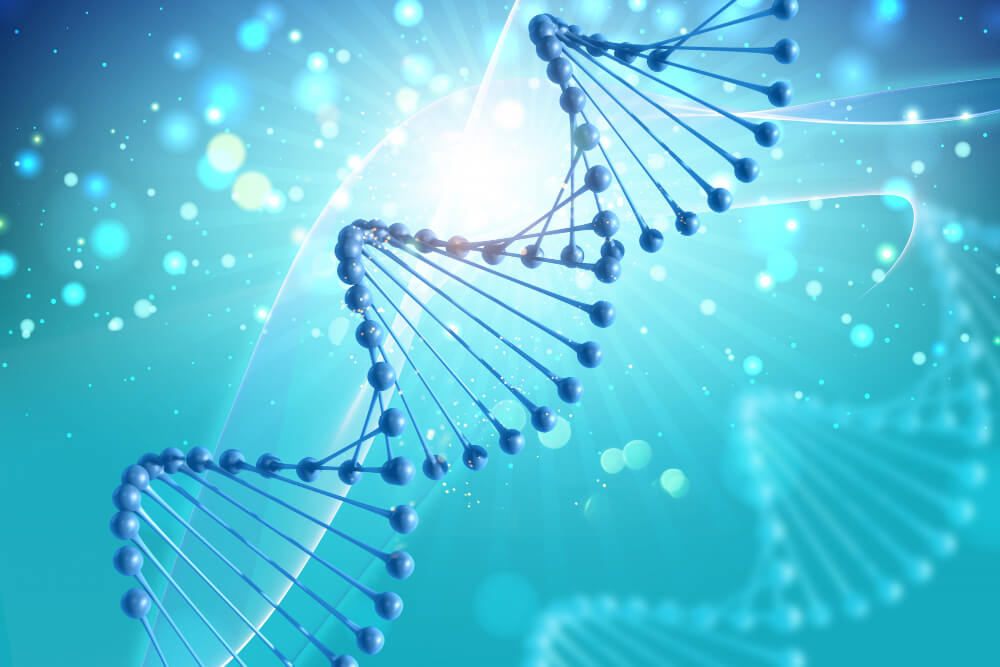
Table of Contents
Decoding Genetics – The Role Played By Genetics in Drug Misuse and Addiction Disorder
Substance use disorder is a multifaceted phenomenon. It gets its shape from different factors. Among the many factors that make a person addicted, genetics can also play a crucial role. Yes, the intricate world of genetics can play a major role in making a person susceptible to addiction.
From this post, you can explore how particular genetic factors can contribute to the risk of developing addictive behaviors. Remember here that a deeper knowledge of genetics will help follow a more customized approach to prevention and treatment.
Genetic Landscape Explained
Genetics, as you know, is the study of genes. Also, this branch of science studies the effect of genes on inherited traits. Genetics and genes have a role to play in drug and alcohol use.
Indeed, environmental factors can play a key role in drug-seeking or other forms of addiction. The association between environment and genetics can create a nuanced and dynamic landscape. In turn, it shapes the vulnerability of an individual to opioid, cocaine, or other types of addiction.
The Basics of Genes and Addiction
Genes are parts of DNA. They encompass instructions to build and also maintain the cells in your body. Genes affect different behavioral and physical traits that you develop. This even includes your response to a substance. Your genes and your environmental factors can either bring down or increase your probability of developing an addiction.
Heritability of Substance Use Disorder
Studies suggest that hereditary elements can increase your chances of drug addiction. Studies further suggest that genetic factors account for nearly 40 to 60% of risk. Nevertheless, you should remember that having a genetic predisposition does not assure the development of drug addiction. Atmospheric contributors like exposure to substances, social influences, and upbringing can play a considerable role in shaping the results.
Spotting Specific Genetic Factors for Drug Addiction
Scientists have spotted particular genes connected with the risk factor of getting addicted. During this study, they focused on those involved in the brain’s reward pathways and neurotransmitter regulation. When there is a variation in these genes, they can influence an individual’s response to substances. In turn, it can affect factors like stress response, impulsivity, and sensitivity to reward.
Reward Pathways and Dopamine Effect on Substance Addiction
The neurotransmitter dopamine is known to play a crucial role in substance abuse. Your genes regulate the reception, release, and production of this neurotransmitter. They can impact the experience of reward and pleasure of an individual.
As you know, genes vary. These variations can influence how intensely a person feels the effects of alcohol and drugs. So, there will be a potential increase in the risk of developing drug use and addiction.

Genetic Risk Factors in Different Kinds of Addiction
Know About the Role of Opioid Receptors In a Person Using Drugs
You might have heard about opioids. But what are opioid receptors? These are present in the brain, and they interact with opioid and endorphins drugs. They also play a considerable role in addiction.
Variations in the genes in opioid receptors can affect how an individual responds to these drugs. In turn, there will be an influence on the probability of them developing an addiction.
Know about Genetic Factors in Alcoholism
Different genes have been associated with susceptibility to alcohol use disorder. Changes in the genes associated with metabolizing alcohol, regulation of neurotransmitters, and the response to alcohol-related cues can increase the risk of a person getting into alcohol addiction.
Genetic Factors in Nicotine Addiction
Addiction to Nicotine is prevalent in people who smoke. It is also influenced by genetics. Genes connected with nicotine metabolism and receptors can affect the susceptibility of a person to dependence on tobacco. So, when you wish to stop using cigars, these genetic factors should be understood for customizing your treatment.
Environment and Gene Interactions In Behavioral Addiction
One factor that increases the risk of addiction is the interplay between the environment and genes. Some genetic changes might increase a person’s sensitivity to atmospheric factors. This is why some people are at higher risk of addiction due to stressors, trauma, and peer pressure.
You might have come across some people who restrain from addiction even after a force from environmental factors. However, some develop severe substance use disorder. Yes, genetics has a role to play here as well.
The Influence of Environment on Gene Expression
You might be new to the term Epigenetics. It is nothing but a study of modification in gene activity. However, this modification should not make any changes to the underlying sequence of DNA.
This study offers insight into how atmospheric factors can affect gene expression. Atmospheric stimuli like exposure to trauma, stress, or substances can change your genes’ activities. In turn, they can contribute to the development of addiction.
Customized Approaches To Prevent and Treat Your Addiction
Nowadays, the effects of genes on addiction are rightly understood. So, the best de-addiction centers do not fail to create a more customized approach to treat and even prevent you from becoming addicted.
With genetic testing and evaluation, these centers can help spot people with a greater risk of drug addiction. In turn, they can achieve targeted interventions and take early preventive measures. Above all, customized treatment options will consider your genetic profile. As a result, you can expect better effectiveness of therapeutic interventions.
Ethical Considerations and Challenges That Can Increase the Risk of Addiction
Indeed, customized approaches to treating people with addiction are showing promising results. However, it comes with ethical considerations and challenges as well. For instance, it can create issues with privacy, potential stigmatization, and consent. These are to be carefully addressed when genetic information is integrated into treating addiction.
More Than Genetics – Comprehensive Approaches To Severe Substance Use Disorder
Indeed, genetics, without any doubt, plays a crucial role in leading to addiction. However, it is crucial to understand a broader context. Comprehensive approaches that take into consideration both environmental factors and genetics, along with social, psychological, and behavioral aspects, offer a more holistic understanding of addiction. As a result, it will lead to more effective treatment and even prevention strategies.
FAQs
The Diagnostic and Statistical Manual of Mental Disorders, shortly called DSM, is a handbook. Physicians in the United States use it. Even it is used by doctors from other world nations as an authentic guide to the diagnosis of mental health issues.
The fifth edition of DSM, or DSM-5, offers 11 symptoms of addiction. This list of signs of addiction has been given in DSM-5 after decades of research.
If you have a drug craving and disorder characterized by compulsive drug usage, it is an indication that you are addicted. Addiction is a serious condition that can make it highly hard to control. You will continue using drugs even though you know that it affects your physical health and mental health.
The best thing you can do to handle the symptoms is to look for an addiction treatment. Along with addiction medicine, the treatment program will teach you some techniques to handle your withdrawal symptoms effectively. Above all, you will get the best supportive group to prevent a relapse.










